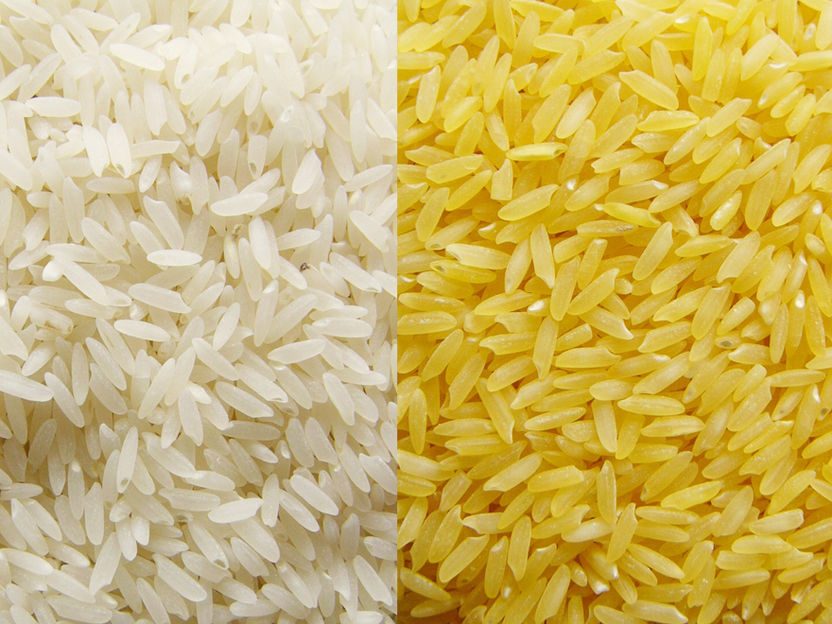Non-profit against hunger
"Golden Rice" one of the most influential projects of the last 50 years
Advertisement
Golden rice is many times richer in provitamin A than other rice varieties. In this way it can counteract the deficiency symptoms suffered by many people worldwide for whom rice is the staple food. Prof. Dr. Peter Beyer, emeritus professor at the Institute of biology at the University of Freiburg, and Prof. Dr. Ingo Potrykus, emeritus professor at the Institute of Plant Sciences at the Swiss Federal Institute of Technology Zurich/Switzerland, developed genetically modified rice in the 1990s. Now the project management Institute (PMI) has honoured the Golden Rice as one of the most influential projects of the last 50 years and included it in the Top 10 list in the category "Health".

Uni Freiberg
In ready-cooked rice grains there are only small traces of beta-carotene, also known as provitamin A, which the body converts into vitamin A. This vitamin is called beta-carotene. People who eat mainly rice therefore often suffer from vitamin A deficiency. Eye diseases, blindness and increased infant mortality are the consequences. The team led by Beyer and Potrykus used two foreign genes - from a bacterium and from the maize plant - to cultivate golden rice, the yellow colour of which is due to the increased beta-carotene content.
In 2000, Beyer and Potrykus donated the technology behind their research work: they founded the non-profit "Golden Rice" project, which aims to spread the rice variety and thus combat the health damage caused by a vitamin A deficiency.
The PMI, an American project management association with more than 550,000 members in over 200 countries, would like to use its list of the most influential projects compiled by experts from research and industry to show what a central role project work has played in shaping the present positively. Golden rice is an important technology for combating vitamin A deficiency.
"Every day around 4,500 children die worldwide as a result of the so-called diet-related immunodeficiency syndrome, the vitamin A deficiency," explains Potrykus. "Many more go blind. The need for golden rice is clear and it is registered as safe in Australia, Canada, New Zealand and the USA. It can contribute as an additional measure against vitamin A deficiency without any cost to farmers or consumers. Regulatory dossiers have been submitted in major developing countries. All that's missing now is health professionals to accept the Golden Rice."
"It is a particular challenge to develop a prototype that certifies feasibility into a product. This requires a lot of specific knowledge and experience beyond research," adds Beyer. "The award and our thanks therefore go also to all those who have helped with perseverance and to those who have supported the project with long breath.
Note: This article has been translated using a computer system without human intervention. LUMITOS offers these automatic translations to present a wider range of current news. Since this article has been translated with automatic translation, it is possible that it contains errors in vocabulary, syntax or grammar. The original article in German can be found here.
























































